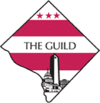Throughout history, guides have deepened travel experiences for their groups and revealed revolutionary new ways of seeing the world. Their knowledge of history, languages, and cultures continues to drive important exploration and discussion in modern times.
Guides are passionate thought leaders who provide support, encouragement, and expertise to those who desire greater meaning in their travels. Whether encouraging future trailblazers to ascend to the summit of Mt. Kilimanjaro or assuring them that good sashimi is a transcendent cuisine, their importance and value is well known. They are mentors and protectors who build bridges to new planes of consciousness.
History’s celebrated explorers owe much to these dedicated, worldly souls. Without them, who knows if the likes of Lewis and Clark, Marco Polo, and others would have been inspired to accomplish the incredible feats too often taken for granted.
Here are six important guides who furthered exploration and discovery for the benefit of all:
1. Tenzing Norgay and Mount Everest
In 1953, Tenzing Norgay assisted Sir Edmund Hillary on his famous trek up Mt. Everest. Having already served as a sherpa for six expeditions, Norgay’s experience was invaluable to Hillary, the first to reach this iconic peak.
2. Sacagawea and the Lewis & Clark Expedition
Between 1804 and 1806, Lewis and Clark charted the as-yet unexplored landscape west of the Mississippi. They relied on Sacagawea, a young native guide, to teach them the lay of the land. A 17-year-old new mother, Sacagawea’s endurance and strength of character was without match. Her support throughout the 7,000-mile journey was essential.
3. Marco Polo in China
Marco Polo was one of the world’s first real travel writers. His detailed descriptions of his travels through Cathay (modern day China) created a new standard for documentation. For Polo, it was a family affair. Had it not been for his father’s and brother’s journeys, Polo probably would have been more occupied with trailblazing than writing.
4. Joseph Walker, Oregon Trail Leader
Oregon Trail pioneers suffered many hardships. Mountain man Joseph Walker made the journey easier for them. His Daniel Boone-esque survival skills, gleaned from years of mountain life, were invaluable to countless families venturing toward the Oregon Coast.
5. Roald Amundsen, Polar Regions Explorer
During his expedition through the Northwest Passage, Roald Amundsen’s Inuit guides provided an immense lift. Amundsen acquired innumerable survival skills during his arduous journey. These skills proved useful a few years later when he reached the South Pole ahead of his explorer competitors in 1911.
6. Henry Morton Stanley, Following Dr. David Livingstone
“Dr. Livingstone, I presume?” Henry Morton Stanley uttered this famous phrase when he located Dr. David Livingston, presumed dead after an expedition into the heart of Africa. Stanley returned to Africa on his own expedition, recruiting many local guides to aid in his interactions with the people of the Congo – the area which influenced his now infamous tales in “The Dark Continent.”
While there is considerably less uncharted territory these days, that is no obstacle to becoming a celebrated explorer or guide in your own right. Do you want to change the way others view the world by becoming a tour guide or tour director? Contact ITMI to learn more.
If you want to be the next great explorer, Stride Travel can help set you on the right path. Contact Stride to embark on an adventure of a lifetime.















